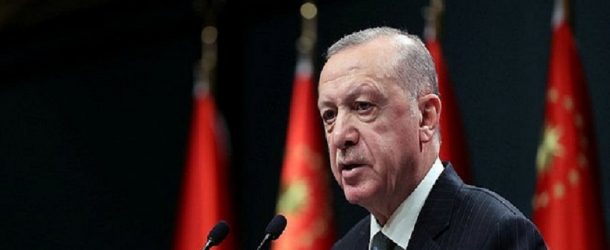Introduction
After having a clear victory both in the parliamentary and the presidential elections in May, Türkiye’s long serving (2014-) President Recep Tayyip Erdoğan (1954-) took his oath and announced his new cabinet today on June 3, 2023. Erdoğan’s new cabinet saw the inclusion of fresh names to the forefront, but did not create high hopes among the Turkish people for the future. In this piece, I am going to introduce some important members (secretaries) of Erdoğan’s new cabinet and I will try to explain what might happen in the new term.
The new cabinet: Who is in?
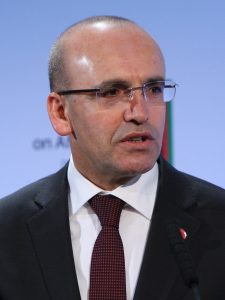
Mehmet Şimşek
Since Türkiye’s most serious problems are related to its economy in the last few years, Erdoğan’s choice of the new Minister of Treasure and Finance was of critical importance. It had been already known for a while that President Erdoğan was trying to convince Mehmet Şimşek (1967-), former Minister of Finance (2009-2015) and Deputy Prime Minister of Türkiye (2015-2018) for this position. Şimşek has always been considered as a trustworthy person for the international finance market since he previously worked 7 years as the chief economist and strategist for the Merrill Lynch Company in London. Coming from Kurdish roots, Şimşek is an internationally accepted professional figure for the finance market having also a British passport. Now, Şimşek will act like the new savior of the economy and will try to give confidence to international markets. Şimşek’s biggest problem on the other hand seems to be President Erdoğan’s stubbornness of keeping interest rates low. Moreover, Türkiye’s deteriorating democratic status and lack of coherent relations with the West will also create some problems for Şimşek to recover the economy and calm down the anxiety in the business circles. Thus, the most important problem in the country will continue to be the economic hardship.
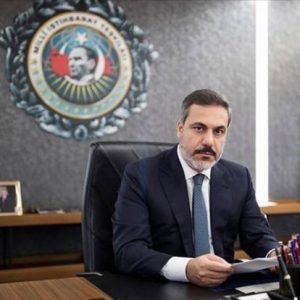
Hakan Fidan
Another fresh name in the cabinet will be the new Foreign Minister Hakan Fidan (1968-). Having been served as the President (Undersecretary) of Türkiye’s intelligence agency-MİT (Milli İstihbarat Teşkilatı) for long years (since 2010), Fidan is a famous, but at the same enigmatic person. Rarely seen in the public and media until now, it will be interesting to see Fidan at the headlines of newspapers and in press conferences very frequently from now on. Fidan is for sure a Turkish nationalist and a loyal bureaucrat to Erdoğan who could create a difference by organizing a more operational Foreign Service with increasing ties with the security bureaucracy. Fidan’s presence could be felt especially in Türkiye’s struggle with terrorism and influence in some regions (Balkans, Caucasus, Middle East, and North Africa) not only with the hard power methods, but also through soft power instruments and negotiation (diplomacy).
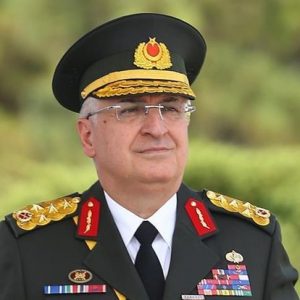
Yaşar Güler
The 30th Chief of the General Staff of the Turkish Armed Forces (TAF) General Yaşar Güler (1955-) is appointed as the new Defense Minister by President Erdoğan in this cabinet. Served almost 5 years as the head of the TAF, Güler will replace Hulusi Akar, former Chief of General Staff. Güler is a serious statesman who rarely makes public statements. However, in this new regime dominated by President Erdoğan, Güler will surely not act as the mighty Turkish Generals of the past.
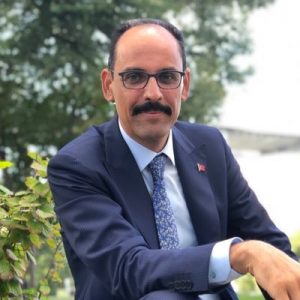
İbrahim Kalın
In addition, by replacing Süleyman Soylu, İstanbul governor (2018-2023) Ali Yerlikaya (1968-) became the Minister of Interior. Furthermore, Yılmaz Tunç (1971-) was appointed as new the Minister of Justice. This was largely perceived as a surprise by political commentators in Türkiye. Professor İbrahim Kalın (1971-) on the other hand was expected to become the new President of Turkish intelligence organization MİT by replacing Hakan Fidan. Having been served as Turkish Presidential Spokesperson since 2014, Kalın is a conservative/Islamic intellectual having many academic books published. An intellectual at the top of the country’s intelligence agency would certainly be a distinguishing factor for Türkiye. Vice President pick of Erdoğan on the other hand was Cevdet Yılmaz (1967-) who previously worked as the Minister of Development (2011-2015, 2015-2016).
Here’s the full list of Erdoğan’s new cabinet:
Vice President: Cevdet Yılmaz
Minister of Justice: Yılmaz Tunç
Minister of Family and Social Services: Mahinur Özdemir Göktaş
Minister of Environment, Urbanisation and Climate Change: Mehmet Özhaseki
Minister of Foreign Affairs: Hakan Fidan
Minister of Energy and Natural Resources: Alparslan Bayraktar
Minister of Youth and Sports: Osman Askın Bak
Minister of Treasury and Finance: Mehmet Şimşek
Minister of Interior Affairs: Ali Yerlikaya
Minister of Culture and Tourism: Mehmet Nuri Ersoy
Minister of National Education: Yusuf Tekin
Minister of Defense: Yaşar Güler
Minister of Health: Fahrettin Koca
Minister of Industry and Technology: Mehmet Fatih Kacır
Minister of Agriculture and Forestry: İbrahim Yumaklı
Minister of Trade: Ömer Bolat
Minister of Transport and Infrastructure: Abdülkadir Uraloğlu
Expectations from the new term
President Erdoğan’s new term will be very difficult as usual. He will have to face with Türkiye’s growing economic problems in addition to negative spillover effects of the recent earthquakes and the Russian invasion of Ukraine. Unwelcoming attitude of Washington and Brussels towards Erdoğan regime due to Türkiye’s problems related to rule of law, freedom of opinion, and democracy will also be major risk elements for Ankara in the new term.
The first issue on the agenda in the new term will be the Swedish accession to NATO. Sweden already ratified a new law for satisfying Turkish concerns about struggle with terrorism. However, due to negative approach towards his government especially in the last few years, President Erdoğan might be in expectation of a rendezvous given to him from the White House by the Biden administration. Erdoğan will probably try to use this meeting as a diplomatic success and consolidate his power in domestic politics. Moreover, Türkiye definitely wants to solve the F-16 problem with Washington in order to be able to supply its air forces with new fighter jets and to modernize the already existing ones.
In domestic politics, Erdoğan government might start to work on a new bill to liberalize all kinds of Islamic dresses in public offices, an issue that was already on the agenda before the elections. By doing this, Erdoğan could further strengthen his ties with the pious masses, plus, he can create a cleavage within the opposition since conservative elements from the opposition such as İYİ Parti (Good Party), DEVA Party, Democrat Party (DP), and Future Party (Gelecek Partisi) might have to support this bill for not alienating their voters. In addition, Erdoğan government might take steps to legislate a new and completely civilian constitution together with its partners Nationalist Action Party (MHP), the New Welfare Party (YRP), and Hüda-Par. This constitution will certainly not bring a return to parliamentary system, but at least it might increase guarantees for personal freedoms and rule of law within a hyperpresidential system.
In addition, the reconstruction of 10 Turkish cities that were devastated by the huge earthquakes in early February will be at the top of the list for domestic politics. The hybrid regime in Türkiye could also be more courageous in the new term for weakening the opposition. In that sense, party closure case against the pro-Kurdish HDP and political ban on pro-secular CHP’s İstanbul mayor Ekrem İmamoğlu could be finalized before the March 2024 local elections to weaken and redesign the opposition. In my opinion, Erdoğan would prefer a classical Kemalist opposition, which would be less dangerous for his regime in terms of electoral performance. Lastly, Erdoğan will continue to support the Turkish defense industry and encourage his country to produce Turkish Army’s weapons domestically. By doing this, Erdoğan will try to decrease Türkiye’s dependency on foreign powers, primarily the United States.
In foreign policy, one of the most important issues in the new term will be the chaotic situation or the mess in Syria. It is not a secret that PYD/YPG groups are seen as branches of PKK, an outlawed Kurdish political organization and a terrorist group, by Ankara. In that sense, Türkiye might try to organize new military operations into Syria in order to sweep or at least weaken PYD/YPG groups. But it should be mentioned that these groups are well trained and equipped by Washington and it might not a piece of cake situation for Ankara to reach its goals in Syria. Moreover, Russia, Iran, and the United States’ approaches to Türkiye’s military operations in Syria have been rather discouraging so far and it could be very hard for Ankara to get the green light from these three actors. However, in case Türkiye and Russia could agree on a limited scale operation, Turkish Armed Forces could do this successfully and could relocate more Syrian immigrants into Syrian soil by forcing Kurdish groups to migrate to distant areas.
In foreign policy, other than these stated issues, normalization with Washington, Tel Aviv (Jerusalem), and Cairo might also be on the agenda in the new term. In addition, Erdoğan could start the construction of a new nuclear power plant in Sinop with Russians, to deepen his ties with the Putin regime. Russia and Türkiye could also work on transforming Ankara into an energy transit country that will facilitate Russia’s gas supplies to European countries. This will provide Türkiye some advantages in the pricing, but also allow Russia to continue to trade with Europe via Ankara. Russian President Vladimir Putin previously offered this vision to Türkiye to separate Ankara from the Western bloc. In addition to these, the visa liberalization for Turkish citizens going to European Union (EU) countries and the updating of the Customs Union could be other major issues in foreign policy for Erdoğan government. But no one is hopeful in Türkiye right now about a real progress in Turkish accession to the EU. Lastly, Türkiye’s efforts of normalization with Armenia and Greece could also continue in the new term, but to be honest, no one expects a miracle on that matters. However, the opening of border between Türkiye and Armenia would not be a big surprise. Armenian Prime Minister Nikol Pashinyan’s visit to Ankara for Erdoğan’s presidential inauguration was also a positive signal for the future.
Conclusion
To conclude, we should be aware of the fact that although Turkish President Recep Tayyip Erdoğan is a political genius and an electoral winning machine, during his term, in fact Türkiye’s distancing from the West accelerated. To put it more concretely, I should say that out of 21 Presidents who personally attended to Erdoğan’s oath ceremony, there were only a few (e.g. Bulgarian President Rumen Radev) Western and democratic countries’ heads of the states. On the contrary, most of the attendees were from autocratic states. One good thing was the participation of NATO Secretary General Jens Stoltenberg to the ceremony, but this could be related to the Swedish accession to NATO. The lack of interest shown by the Western countries’ Presidents to the ceremony should give us an idea about the direction of Türkiye for the future. This should also be considered as a warning for the Western world since I believe Turkish-Russian relations will further develop with this new cabinet unless there is a fundamental change in Ankara’s relations with the West.
Assoc. Prof. Ozan ÖRMECİ


